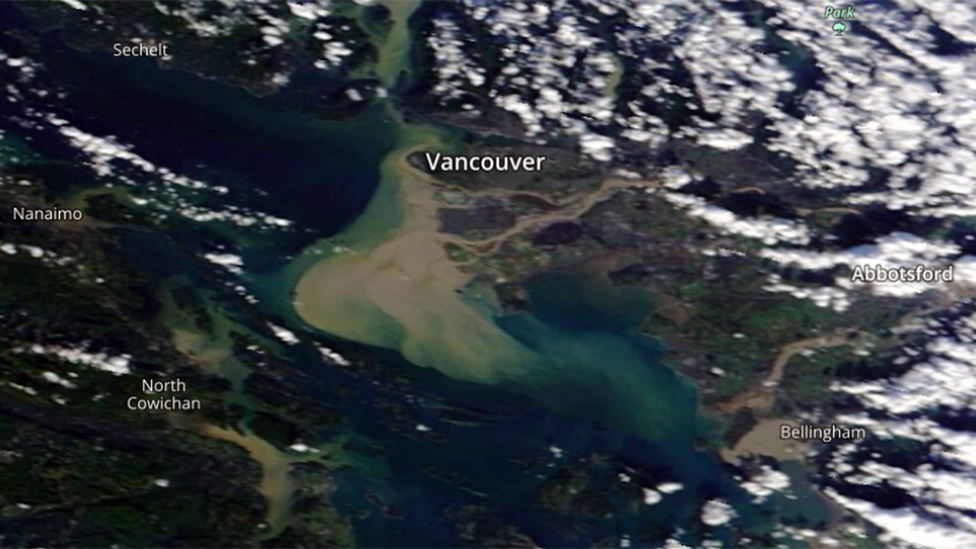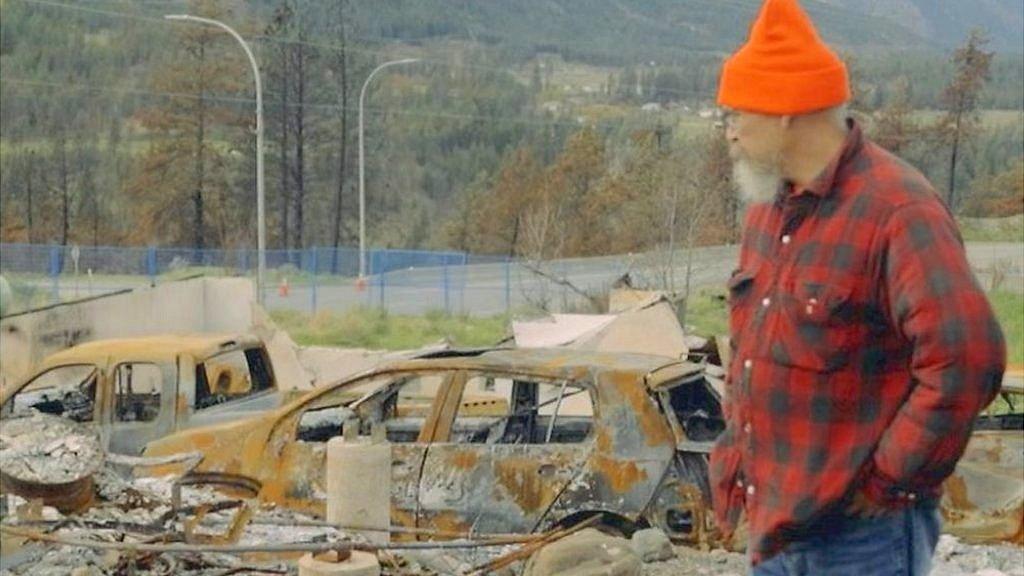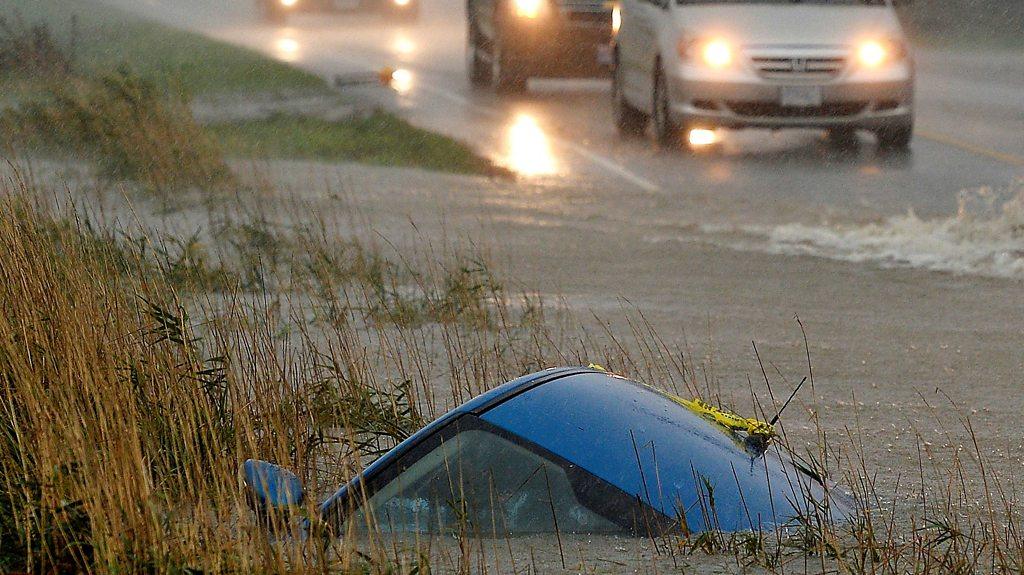Deadly storm cuts transport links around Vancouver
- Published
Watch: British Columbia left devastated after storm
A deadly storm described by officials as a once-in-a-century weather event has severed road and rail links around Vancouver, Canada.
Two motorways connecting the West Coast city were closed after being damaged by severe flooding.
Thousands of people were forced to leave their homes due to the massive storm, which struck on Sunday.
A woman was killed in a highway landslide, and rescuers say at least two other people are missing.
The woman's body was found near Lillooet, about 250km (155 miles) from Vancouver, according to the Royal Canadian Mounted Police (RCMP).
RCMP Sgt Janelle Shoihet said that rescuers had not yet determined the number of occupied vehicles that were lost in the slide, according to AFP news agency.
Motorist Kathie Rennie told CBC News, external she saw the landslide come down on traffic that was already at a standstill south of Lillooet.
"No sooner do we get back into our vehicles, the people that were in front of us are just screaming and running," she said. "The look on their faces, it was like a tsunami was coming. It was the scariest thing that I've ever seen.
"I just turned around, and I'm just watching the whole side of the mountain coming down and taking out these cars... everything just being swept away. Just complete panic."
'Worst weather storm in a century'
The provincial minister of transportation, Rob Fleming, told a news conference it was the "worst weather storm in a century". Minister of public safety, Mike Farnworth, said he had "no doubt" that the storm was linked to climate change.
Thousands of homes in British Columbia were evacuated after an "atmospheric river" - a long strip of moisture in the atmosphere that transports water from tropical regions towards the poles - dumped the region's monthly rainfall average in just 24 hours.

An image from Nasa's worldview on Tuesday shows the extent of the flooding across the British Columbia region
All 7,000 residents of Merritt, about 120 miles north-east of Vancouver, were ordered to flee their homes on Monday.
Snow fell on there on Tuesday, and cars could be seen floating in icy flood waters in town.
Helicopter crews were also sent to the town of Agassiz to rescue about 300 people who became trapped on a cut-off road.
The rains and winds had largely finished by Tuesday afternoon, but several communities remained stranded. On Tuesday, officials in Abbotsford told residents to leave the Sumas Prairie and Yarrow neighbourhoods immediately as rising water levels posed "a significant risk to life."
"You need to leave immediately," Mayor Henry Braun said. "Nothing is worth your life. Tomorrow morning may be too late."
Allow X content?
This article contains content provided by X. We ask for your permission before anything is loaded, as they may be using cookies and other technologies. You may want to read X’s cookie policy, external and privacy policy, external before accepting. To view this content choose ‘accept and continue’.

Part of the Trans-Canada Highway, which connects Vancouver to the rest of the country, was submerged under water.
A chunk of the Coquihalla Highway, which links Vancouver to the province interior, appeared to have crumbled into floodwaters.
At one point the main available land route out of Vancouver was to enter the US and then return to Canada. However, re-entering Canada from the US requires a negative coronavirus test, and roads in the border state of Washington were also affected by the storm.
The port of Vancouver, the largest in Canada, was forced to suspend all rail access because of the flooding and landslides, halting shipments of food, fuel and other goods.
The port moves about C$550m ($440m) worth of cargo every day, according to Reuters news agency. Fuel pipelines in the area have also been turned off as a precaution.
The impact of climate change on the frequency of storms is still unclear, but we know that increased sea surface temperatures warm the air above and make more energy available to drive hurricanes, cyclones and typhoons. As a result, they are likely to be more intense with more extreme rainfall.
The world has already warmed by about 1.2C since the industrial era began and temperatures will keep rising unless governments around the world make steep cuts to emissions.
The storm comes after British Columbia suffered a record high heat wave over last summer that killed more than 500 people, and wildfires that destroyed an entire town.

You may also be interested in:
Life at 50C: Lytton - the Canadian town that burned down in a day

Have you been affected by the storm? Share your experiences if it is safe to do so. Email haveyoursay@bbc.co.uk, external.
Please include a contact number if you are willing to speak to a BBC journalist. You can also get in touch in the following ways:
WhatsApp: +44 7756 165803
Tweet: @BBC_HaveYourSay, external
Please read our terms & conditions and privacy policy
If you are reading this page and can't see the form you will need to visit the mobile version of the BBC website to submit your question or comment or you can email us at HaveYourSay@bbc.co.uk, external. Please include your name, age and location with any submission.
Related topics
- Published10 November 2021

- Published16 November 2021
